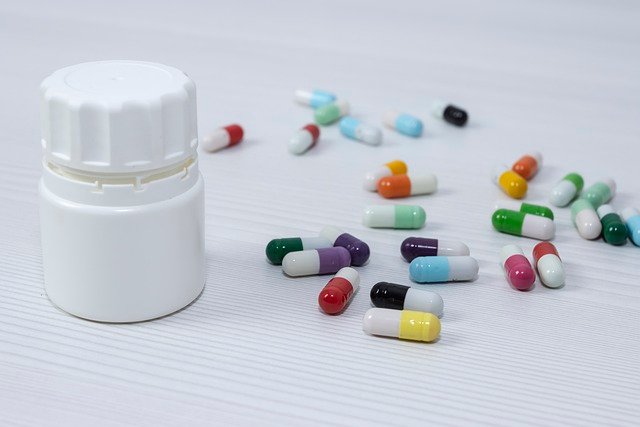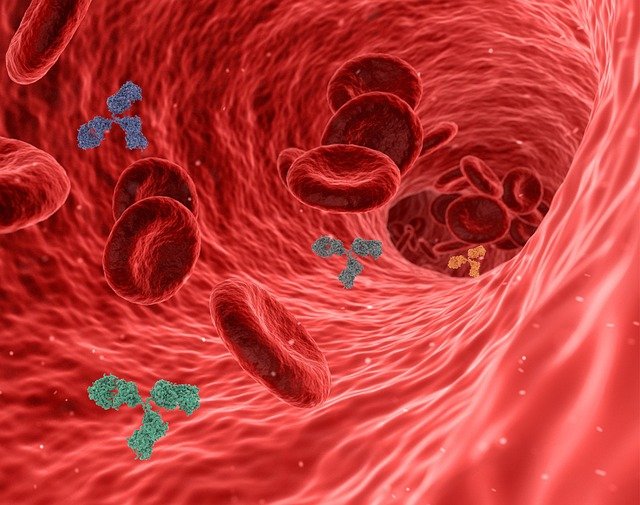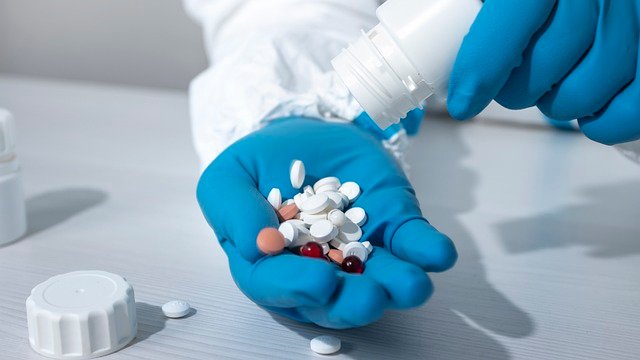Antibiotics are medicines used in fighting bacterial infections either by killing or restraining the growth of microorganisms.
From my research, there are two common types of antibiotics.
- Bactericidal antibiotics: They kill bacteria directly, e.g., ampicillin.
- Bacteriostatic antibiotics: They restrain bacterial growth, enabling the immune system to fight the infection, e.g., tetracycline.
They are classified into two groups:
- Broad-spectrum antibiotics: They act on a wide range of bacteria, e.g., ampicillin.
- Narrow-spectrum antibiotics: They act on specific types of bacteria, e.g., penicillin.
Antibiotics are also used in treating bacterial infections, like urinary tract infections, skin infections, and pneumonia. They are also used in preventing infections in people with weakened immune systems, like people with HIV/AIDS.
How do antibiotics help us fight off infections? |
|---|
Antibiotics help fight infections by reducing bacterial cells either by killing them or restraining their reproduction. Common ways they help fight infections are:
Reducing bacterial effect: Antibiotics help subdue the effects of bacteria in the body, enabling the immune system to fight infections.
Relieving symptoms: Antibiotics reduce the number of bacterial cells, which helps to eliminate symptoms like pain and fever.
Preventing complications: Antibiotics help to prevent complications that may arise as a result of untreated infections, such as organ damage.
Supporting the immune system: By reducing the number of bacterial cells in the body, the immune system can effectively fight infections.
What are some side effects of taking antibiotics? |
|---|
Antibiotics are helpful, but they also have side effects; these effects are sometimes mild and other times severe.
Mild Side Effects
Digestive issues: They may cause health issues like vomiting, abdominal pain, stomach cramps, or diarrhea.
Allergic reactions: They can cause health issues such as itching, rashes, or swelling of the face, lips, or tongue.
Fatigue: They may result in issues like weakness, lack of energy, or tiredness.
Dizziness: They can also cause issues like dizziness when standing up quickly.
Less Mild Effects
Kidney damage: Certain antibiotics can damage kidney function, e.g., aminoglycosides.
Loss of hearing: Antibiotics like aminoglycosides can cause hearing loss and ringing in the ears.
Severe Side Effects
Certain antibiotics can sometimes result in seizures, like penicillin.
To prevent most of these effects, antibiotics should be taken according to the prescription of a doctor. In case of any side effects, you shouldn't hesitate to inform your doctor. Do not stop the treatment of antibiotics even when you start feeling better; always endeavor to complete the treatment.
Why is antibiotic resistance a problem, and how can we avoid it? |
|---|
Limited options for treatment: As antibiotics become ineffective, options for treatment are limited, making it challenging to fight infections.
Ineffective treatment: Antibiotic resistance renders standard treatments ineffective, fostering high death rates, high costs of healthcare, and prolonged illness.
High risk of complications: Antibiotic resistance to infections may cause severe complications like organ failure and death in many cases.
In avoiding antibiotic resistance, it applies to the different categories involved in its applications.
| For Individuals |
|---|
Use antibiotics when necessary: Take antibiotics only with the prescription of a health practitioner, and make sure to complete the treatment as recommended.
Get vaccinated: Take recommended vaccinations to prevent infections.
Practice good hygiene: Wash hands regularly to prevent infections, especially during cold and flu season, and after carrying out dirty work.
| For Health Practitioners |
|---|
Mode of prescription: Prescribe antibiotics only when necessary with the proper duration of treatment.
Educate patients: The risks of antibiotic resistance and the proper use of antibiotics should be made known to patients.
| For the Community |
|---|
Promote public awareness: Proper education on the risks of antibiotic resistance and the proper use of antibiotics should be made known to the masses.
Implement policies: Set out policies that will promote the proper use of antibiotics and prevent the spread of antibiotic-resistant bacteria.
Do antibiotics affect our immune system? |
|---|
Antibiotics have both positive and negative effects on the immune system.
Positive Effects
- Some antibiotics help to regulate and support immune functioning.
- They prevent the spread of infections by targeting specific bacteria and also limit the risk of complications.
- Bacterial infections that can weaken the immune system are prevented with the help of antibiotics.
Negative Effects
- Broad-spectrum antibiotics can suppress the immune system and prevent an effective response to infections, rendering it incapable of fighting infections.
- An imbalance of gut bacteria may lead to changes in immune system functions, increasing the risk of infections.
Can we treat diseases without using antibiotics? |
|---|
Without relying much on antibiotics, there are other alternatives for treatment.
Gene therapy: Gene therapies can help in the repair or replacement of faulty genes that contribute to disease.
Surgery: In most cases, surgery can be carried out to treat diseases and remove infected tissues.
Supportive care: Taking supportive measures like rest and proper nutrition can help the body prevent certain illnesses.
Vaccination: Vaccination can help in the prevention of infections, thereby reducing the use of antibiotics.
Practicing good hygiene: Regular handwashing and keeping a clean environment can prevent the spread of infections.
Healthy lifestyle: Eating a balanced diet and exercising regularly helps prevent infections.
 Image Source Balanced meal Image Source Balanced meal |  Image Source Regular exercise Image Source Regular exercise |
|---|
How can we use antibiotics responsibly? |
|---|
It is very necessary to use antibiotics responsibly to prevent any side effects.
• Antibiotics should be taken only under the prescription of a health practitioner for the duration recommended.
• Do not share antibiotics with others or save them for future use.
• In case of allergies, do not hesitate to inform your doctor.
For health practitioners
• Antibiotics should be prescribed only when necessary and the appropriate ones for specific infections.
• Educate patients on the proper use of antibiotics, their side effects, and the need to complete treatments.
• Programs that promote the proper use of antibiotics and proper prescriptions should be implemented.
Through unity and teamwork, the responsible use of antibiotics can be promoted to ensure the prevention of diseases and infections.
Thanks for reading friends...
I will love to invite;
@imohmitch
@us-andrew
@precious9
Cc,
@sahmie




https://x.com/Promisezella/status/1871696785649053699?t=YhpX7T8HtREgx2_u9xYpOg&s=19
Downvoting a post can decrease pending rewards and make it less visible. Common reasons:
Submit